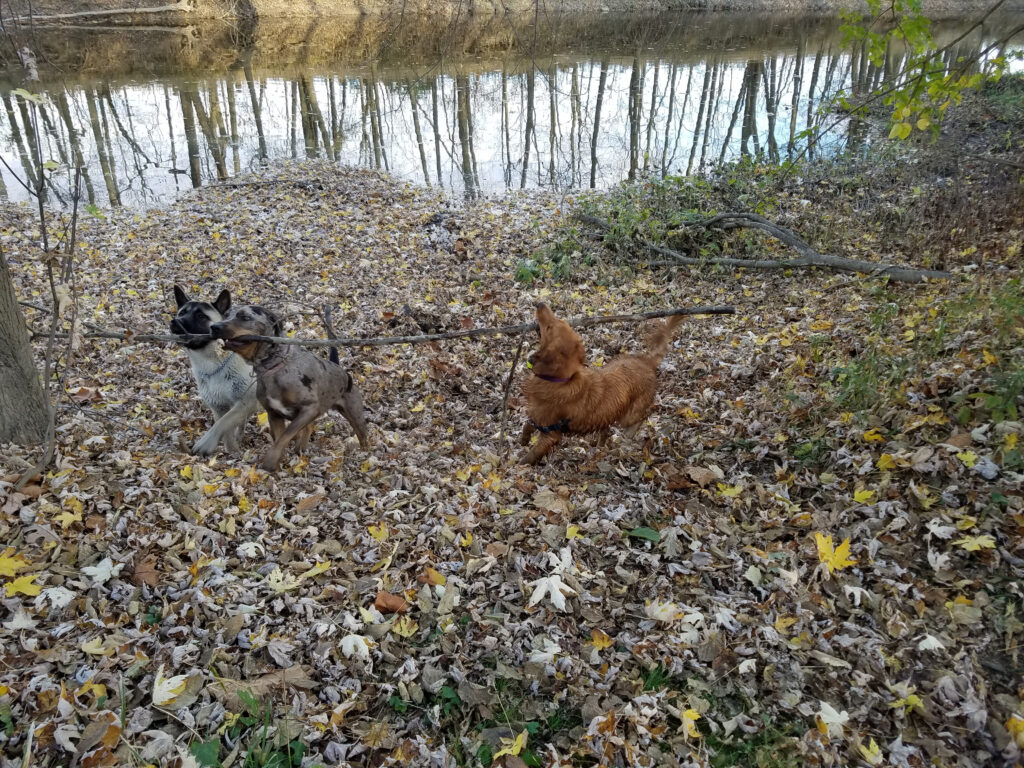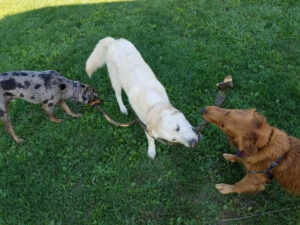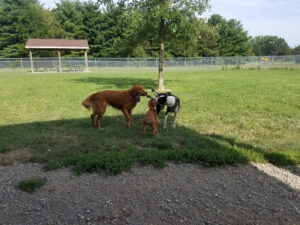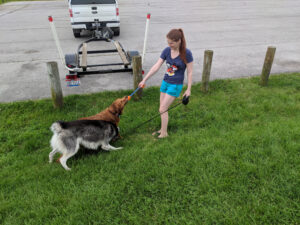
Bringing a new puppy into your home is an exciting adventure, filled with joy and boundless energy. One crucial aspect of raising a well-rounded and happy canine companion is ensuring they develop strong socialization skills. To help you develop your puppy’s socialization skills, we’ll delve into the importance of socialization, key principles to follow, and practical tips to help your puppy navigate the world with confidence.
Why Socialization Matters
Socialization is the process through which puppies learn to interact with people, other animals, and their environment. It lays the foundation for a well-adjusted and behaviorally sound adult dog. Early exposure to various stimuli helps puppies develop into confident, adaptable, and friendly companions. Without proper socialization, dogs may become fearful, anxious, or display aggressive behaviors.
Key Principles of Puppy Socialization
- Early Start:
Start to develop your puppy’s socialization skills early, ideally between 3 to 14 weeks of age. This critical period is when puppies are most receptive to new experiences. Introduce them to a variety of people, places, and situations during this time to build positive associations. - Positive Reinforcement:
Use positive reinforcement techniques to reward desirable behaviors. This can include treats, praise, or playtime. Positive experiences during socialization create a positive mindset, making your puppy more receptive to new encounters. - Gradual Exposure:
Introduce new experiences gradually. Overwhelming your puppy with too much stimuli too soon can have the opposite effect, causing fear or anxiety. Pay attention to your puppy’s body language and adjust the pace accordingly. - Diverse Environments:
Expose your puppy to different environments, surfaces, and sounds. This can include walks in the park, car rides, visits to friends’ houses, and exposure to various floor textures. The goal is to help them feel comfortable and confident in a range of settings.
Practical Tips for Effective Socialization
- Playdates:
Arrange playdates with other vaccinated and friendly dogs. Controlled interactions with other canines teach your puppy appropriate social cues, communication, and play behavior. - Meeting People:
Introduce your puppy to a diverse group of people, including children, adults, and individuals wearing hats or uniforms. This helps them become accustomed to different appearances and behaviors. - Handling Exercises:
Gently handle your puppy’s paws, ears, and mouth to prepare them for veterinary exams and grooming. Gradual desensitization to touch builds trust and helps prevent fear-based aggression. I handle my dog regularly and as a result she doesn’t have problems with touching, brushing, and examining her. - Positive Vet Visits:
Make regular trips to the veterinarian enjoyable experiences. Reward your puppy with treats and praise during and after visits to create positive associations with healthcare. My pup loves going to the vet. She gets to meet new people and she loves that. - Exposure to Different Surfaces:
Allow your puppy to walk on various surfaces like grass, gravel, sand, and hardwood floors. This builds their confidence and coordination. - Training Classes:
Enroll in puppy training classes where they can interact with other dogs in a structured environment. Professional guidance ensures that interactions are positive and beneficial for your puppy’s development. This will also schedule time for you and your pup to train together and bond. - Dog parks: Dog parks are a great way to socialize your pupper. You will need to stay alert for the people who bring their aggressive dogs in and recognize the time to leave. Most of the time dog parks are extremely helpful in socializing your pup.
Finally, Take Time to Develop Your Puppy’s Socialization Skills
Investing time and effort in developing your puppy’s socialization is a gift that keeps on giving throughout their lifetime. A well-socialized dog is not only a joy to be around but also exhibits better behavior in various situations. Remember, each puppy is unique, so tailor your approach to their individual needs and preferences. By following these principles and tips, you’ll be well on your way to fostering a well-rounded, socially adept canine companion. So, grab the leash and embark on this exciting journey of cultivating canine connections with your furry friend!
Click here to see what Wikipedia says about the socialization of animals





1 comment for “A Guide to Cultivating Canine Connections – How to Develop Your Puppy’s Socialization Skills!”